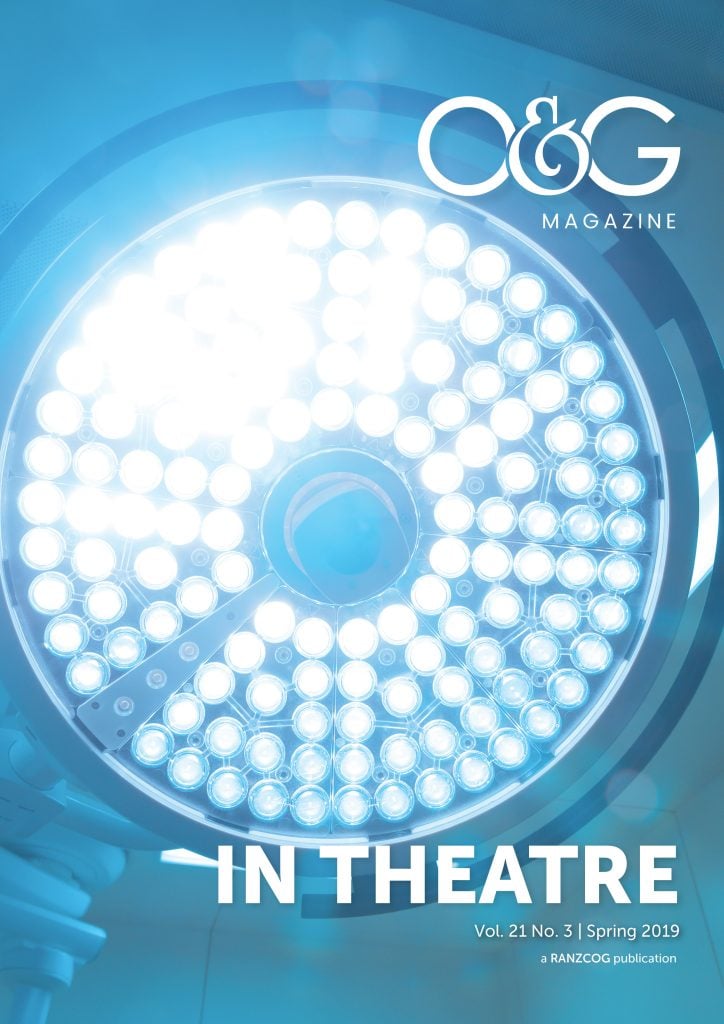Period and fertility apps have recently become increasingly popular and there is currently a range of different apps on the market to choose from. These apps enable users to track their menstrual cycle with their smartphone, provide predictions about the timing and progression of one’s period, including relevant physical and mental processes related to the cycle, and provide information about fertility. As such, these apps can assist users in predicting ovulation and achieving or preventing conception. Some apps also market themselves as digital contraception tools.
As promising and innovative as many of these apps appear, they vary in price, quality, design, functions, inclusiveness and safeguards offered to users regarding data privacy and security. Before using an app, patients should ask a range of questions, which will help them navigate the search for a period tracker tailored to their expectations and needs.
Are there any risks in using period and fertility apps?
Many period and fertility tracking apps are available for download free of charge. While this makes them easily accessible to potential users, one should be aware that they work on the basis of a trade-off. In this equation, the app provides information about the menstrual cycle and makes relevant predictions, in exchange for user data. Hence, the use of such app is not technically ‘free’ or without risks.
Some free-of-charge apps are known to sell data to third parties, while others promise to only share de-identified data with researchers.1 Before one starts using an app, it is advisable to do a background check and see if the app has a history involving data selling or leaks of sensitive user data.
Furthermore, it is also useful to know who is behind a particular app. A recent investigation by the Guardian uncovered that a popular women’s health and fertility app with a user base in the US, Europe, Latin America and Africa has been ‘funded and led by anti-abortion, anti-gay Catholic campaigners’ and involves guidance from medical advisers who are not licensed to practice in the US.2 The app is collecting detailed information about women’s sex lives while promoting natural forms of family planning, which are among the least-effective contraceptive methods.
Background information about investors and app development teams matters as it can generate concerns regarding potential hidden agendas, which could be shaping the focus, content and quality of advice offered to users as well as raise additional worries about ‘data mining’ for specific interest groups. App stores may provide information about companies and developers behind particular apps and the withholding of such information, including contact or website details, may signal that an app is less than trustworthy.3
These issues considered, the user might want to take extra precautions to ensure that an app of their choice is likely to serve their best interests or decide to continue tracking their cycle using older traditional methods.
Which functions and modes of use do apps offer?
Different apps offer different functions. If one desires to engage in period tracking for the purpose of avoiding pregnancy, an app that overestimates the ovulation window is preferable, while an app offering a more conservative prediction of ovulation would be suitable for users trying to get pregnant.4 Some apps also enable users to tailor functions according to their preferences. For example, users who do not wish to procreate can switch off fertility functions in some apps and focus solely on period tracking. Several apps can be used without having to set up an account, which can help to keep tracking more confidential.
What happens with my data?
Some period and fertility apps collect sensitive personal data about their users. For example, some apps ask detailed questions about users’ sex life or pregnancy plans. It is, therefore, important to get an understanding about which data are being collected by an app, if and how the data are stored and what happens with the stored data.
To get a clearer idea about data handling, it is important to carefully read an app’s privacy policy. This can be a time-consuming and demanding task as privacy policies are often extensive and use legal terminology, which can make them harder to understand. Yet, the sensitivity of the collected data and the possibility of a leak or misuse are significant issues, bearing risks that are not to be taken lightly.
For example, it was recently reported that one of the most popular period and ovulation-tracking apps was sharing data about users’ menstrual cycles and procreative plans with Facebook.5
Privacy policies should be transparent about data handling. If there is a lack of transparency or a chance that an app might share user data with third parties outside of the context of academic research, these are reasons for concern and a quest for a safer way of tracking. When using an app, it is always advisable for users to check the privacy settings on their devices for ways to opt-out of data collection.
Is this app for me?
The content and guidance offered by apps can often be targeted to and relevant for selective user groups. Many apps are designed for younger cisgender (those who identify with the gender assigned to them at birth) women who are in heterosexual relationships and want to have children. For example, many apps involve implicit assumptions that users have sex with male partners and some only offer options for logging sex in the context of fertility tracking.
As such, apps can exclude some potential users, such as LGBTIQ (lesbian, gay, bisexual, transgender, intersex and queer) users, those who do not seek sex because they are asexual and users not wanting to procreate or undergoing perimenopause.
Accordingly, not all apps targeting women are free of gender stereotypes.6 A recent study combining an analysis of app reviews, with a survey and follow-up user interviews, noted that gender stereotypes and lack of inclusiveness leave some users feeling alienated.7 Some study participants also report finding apps infantilising and insulting, especially when their design is being dominated by pink colour and images of flowers and love-hearts, with one user explaining, ‘a lot of them just felt kind of condescending or like they were designed by dudes who were designing what they thought a woman would like.’8
Finding inclusive and gender egalitarian apps requires more effort, but there are some options on the market patients can choose from.9
How reliable are digital contraception apps?
One particular area of fertility apps patients ought to be cautious about involves contraception apps. While there has been much hype about digital contraception, with some apps being marketed as having similar efficacy to barrier or hormonal contraceptive methods, latest evidence calls these claims into question.
It has been reported that several women fell unintentionally pregnant while using an app, which has been certified for use as a contraceptive method in Europe and FDA-approved in the US.10Subsequently, it turned out that the ‘correct use’ of the app was predicated upon a very idealistic notion of the user, one with a strictly regular daily routine, sleeping patterns and significant tech user literacy. As such standards and rigid behavioural patterns are difficult to achieve, digital contraception remains less reliable to many.
Should I agree, as I am being encouraged, to use an app by a third party?
Some employers have been found to ‘encourage’ their employees’ use of period and fertility apps. In some cases, the alleged purpose was for companies to have an overview of how many employees were pregnant or planning to have a child.
One such case involved bosses accessing information about how many workers using one provider’s fertility, pregnancy and parenting apps were experiencing high-risk pregnancies, gave premature births as well as their most searched medical questions.11
This information is obviously highly sensitive and, once in employers’ hands, it can have significant effects on predominantly women’s employment status, promotion opportunities as well as women’s position in the labour market more generally.
Beside employers, insurance companies have also been known to encourage the use of self-tracking mobile health technologies and, at times, offer better insurance deals to those who agree to self-track.12
Taking into consideration the sensitive nature of the data collected by many apps and their potentially serious implications for access to employment opportunities and health insurance services, patients might have good reasons to abstain from allowing third party access to their personal data.
Conclusion
There is currently a range of diverse apps on the market, with new technologies being constantly developed. Potential users need to be aware that apps can significantly differ in quality and that their use can raise issues and risks related to data privacy and security, including negative implications involved in menstrual surveillance by employers, insurance companies or other third parties.
When approached by patients for advice, it would be good if health professionals could inform patients about the chances and risks involved in period and fertility tracking and suggest to them core questions and concerns to consider when searching for an app suitable to their interests and needs.
References
- Q Grundy, K Chiu, F Held, et al. Data sharing practices of medicines related apps and the mobile ecosystem: traffic, content, and network analysis. BMJ. 2019;364:l920.
- J Glenza. Revealed: women’s fertility app is funded by anti-abortion campaigners. The Guardian. 2019. Available from: www.theguardian.com/world/2019/may/30/revealed-womens-fertility-app-is-funded-by-anti-abortion-campaigners.
- Federal Trade Commission. Understanding Mobile Apps. 2019. Available from: www.consumer.ftc.gov/articles/0018-understanding-mobile-apps.
- D Epstein, NB Lee, JH Kang, et al. Examining Menstrual Tracking to inform the design of personal informatics tools. Proc SIGCHI Conf Hum Factor Comput Syst. 2017;2017:6876-88.
- J Doward, R Soni. Facebook attacked over app that reveals period dates of its users, The Guardian. 2019. Available from: www.theguardian.com/technology/2019/feb/23/facebook-app-data-leaks.
- M Hall. The Strange Sexism of Period Apps. Motherboard Tech by Vice. 2017. Available from: www.vice.com/en_us/article/qvp5yd/the-strange-sexism-of-period-apps.
- D Epstein, NB Lee, JH Kang, et al. Examining Menstrual Tracking to inform the design of personal informatics tools. Proc SIGCHI Conf Hum Factor Comput Syst. 2017;2017:6876-88.
- D Epstein, NB Lee, JH Kang, et al. Examining Menstrual Tracking to inform the design of personal informatics tools. Proc SIGCHI Conf Hum Factor Comput Syst. 2017;2017:6876-88.
- E Hinchliffe. Are period apps gender-inclusive? Not quite, but they’re trying. Mashable Australia. 2017. Available from: https://mashable.com/2017/08/08/clue-period-apps-language/?europe=true.
- K Sheridan. Controversial contraception app approved in U.S. drawing scrutiny overseas. Stat. 2018. Available from: www.statnews.com/2018/09/11/contraception-app-natural-cycles-scrutiny-sweden/.
- D Harwell. Is your pregnancy app sharing your intimate data with your boss? Washington Post. 2019. Available from: www.washingtonpost.com/technology/2019/04/10/tracking-your-pregnancy-an-app-may-be-more-public-than-you-think/?noredirect=on&utm_term=.d0fc06e576d2.
- M Juang. A new kind of auto insurance technology can lead to lower premiums, but it tracks your every move. 2018. Available from: www.cnbc.com/2018/10/05/new-kind-of-auto-insurance-can-be-cheaper-but-tracks-your-every-move.html.






Leave a Reply